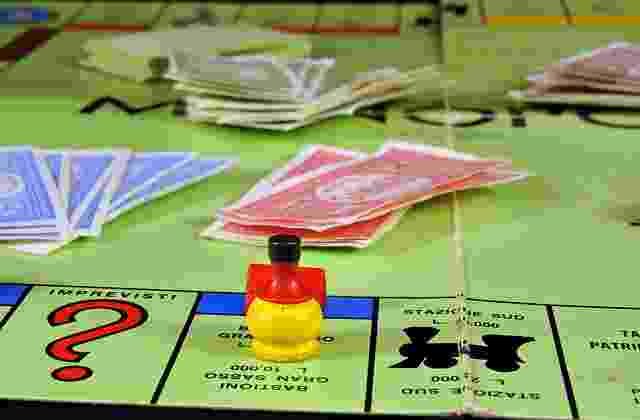Monopoly as a central concept in economics and public policy goes back hundreds of years. Even the word “monopoly” brings images of big-business behemoths stomping across industry, setting prices and squelching rivals. However, what is monopoly after all and how does it become such a controversial concern? Read this blog to find out more about monopolies, their effects on markets and the line between avoiding it while still maintaining as a regulator.
What is Monopoly?
When one company or entity fully owns the market—we call it a monopoly. A firm which is considered to be a true monopoly, has anyone one else within the market who can directly compete against that it.
For nearly one hundred years now, Monopoly has been a household favourite board game.
Monopoly Board Game: Through Strategy, Luck and Capitalism
The classic board game Monopoly has been a family favourite for nearly 100 years. The game’s mix of skill, luck and deal-making has appealed to people of all ages in more than 100 countries. Yet behind the vivid board and classic pieces Monopoly offers an intriguing portrait of capitalism, property, and human nature.
Origins of Monopoly
Monopoly was created in the early 20th century, and sprang from “The Land Lord’s Game” developed by Elizabeth Magee in 1903. But Darrow banked on the Lizzie version and published his own, very capitalist/competitive inspired take of the game during the Great Depression. Parker Brothers bought it in 1935, whereupon the game became an… Or was not sure right instant ray && yet popular Mine Monopoly.
Skill set to improve Game of Monopoly
1. Stepping up the gameMore money to start with: You could choose to give each player more initial capitol (ex., 2000 instead of the usual 1500) you will just end up reaching WIN faster. This allows property to be purchased faster, and slows down early game rates of growth stagnation.Include a game limit (e.g. 2 hours) When time is up, the player with assets (dollars and real estate) wins.All Properties Must Be Auctioned Off: At the Start (doesn't wait for a player to land- auction blocks) This makes it easier for players to get into the meat of trading and strategic planning
2.Balanced gameplay
A limit should be put on the number of houses and hotels that can be bought. There are only so many available and this prevents to early a monopoly and makes it last longer in my mind.
Redistribute wealth: We add an optional “universal basic income” (UBI) rule, where players are given a small payment 2 from the bank every turn, even if they have no property. This ensures that players will not run out of money and be forced to quit due to rent or debts owed to other players.
Taxes on wealthy players: In order to make the game more fair, players having wealth above a particular limit should pay luxury tax or extra amount to the bank when they go beyond that.
3.Enhance player interaction
Dynamic Trading: Allow players to trade more than just properties. Players can make deals that include future cash payments, rent exemptions for a set number of turns, or exclusive alliances.
Group Play: Partner up in pairs so players can share resources and plans with each other – more teamwork and encouragement.
Random Events Cards: You could add this deck of cards called "Event Cards" that players draw when they land on a specific spot that would introduce a number of random scenarios. Everything from a stock market crash, to getting a tax refund, or being able to build property for cheaper.
4. Innovative Game Mechanics:
Special abilities: Everyone has at least something that gives them a slight advantage. For instance, one player may be "A banker", that receives an additional $100 every time they pass Go, and another could become a "Developer" which gives them cheaper houses.
Investment Opportunities: Add an "Investment" part where players can purchase shares in a bank. Many of the investments in which you placed your valuable money are now worthless, and whether they remain so becomes subject to dice die rolls or event cards.
New ways to make money: A way to monetize properties beyond just collecting rent (Operating businesses where players can invest in profit-generating opportunities or own utilities that pay out on rolling.
5. Personalization for Added Fun
House Rules: Add known house rules like putting tax money on free parking (& if you land there, get it) or give people the option to pass and not have an auction (if meeting requirements slows down your game!)
Themed Monopoly sets: Customize the board, cards and properties to match a certain theme — like your favorite movie, city or epoch. This can help make a game feel fresh and your own.
6.Digital Integration
Monopoly Companion App: Track who moved and how much they really have, automate auctions (or perhaps eliminate them knowing you people), or add house rules such as making a larger $100 bill print out every time Tax is landed on. Some games might also change or add new rules and events on the fly
Play online: To keep the games going even when people are not physically together, go for online versions of Monopoly. You can play in different locations making it more accessible.
Positive Effects on Mental health:
1.Better Social Interaction: Playing Monopoly in a social setting encourages communication and cooperation, which go a long way in the attainment of emotional well-being. It can reduce feelings of loneliness, foster relationships among friends and family, and promote healthy competition.
2. Development of Cognitive Skills:
Critical thinking, forward planning, and resource management are the different skills that become the order of the day in the game Monopoly. It can help one be better at decision-making and work on problem-solving skills, understanding financial literacy, and strategic thinking with ease. Such cognitive exercises really hone one’s mind and enable the player to approach life’s decisions in a more analytical manner.
3. Stress-relieving and relaxation:
Light-hearted players view such games as Monopoly as a means to unwind and get away from life’s turmoil. Playing lightly brings on relaxation and relieves stress.
4.Enhances emotional regulation:
It improves the emotional resilience of a player by learning to handle frustration, managing disappointment, and dealing with unexpected setbacks when losing at Monopoly.
5. Mental Stimulation:
Regularly engaging in strategy-based games such as Monopoly stimulates the brain, potentially reducing the risk of cognitive decline and related conditions such as dementia in older adults.
Conclusion
Monopoly is classic, but slight innovation brings a newfound life of its own: turning up the speed of the game, balancing the game for all players, or devising new strategic elements can breathe new life into it. Mold the rules to suit your group’s preferences to have more fun and excitement in your group.
Share this content:


